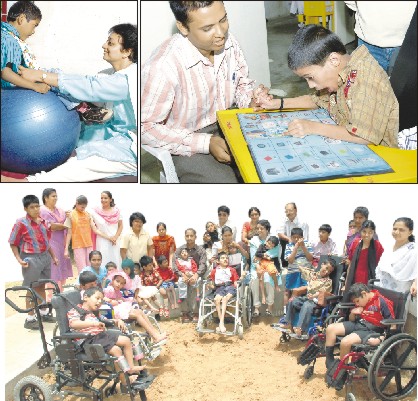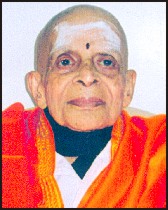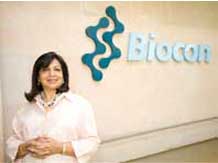by S.N.Venkatnag Sobers
Mysore :
Not many organisations come forward to work for the noble cause of bringing up special children and make them lean an independent life. Mysore has a few organisations working for special kids. Their endeavours may yield success or fail. But, the efforts put in by them cannot be ruled out. One such organisation is Sneha Kiran.
Sneha Kiran is a part of Mysore Spastic Society which was started in the year 2002 and has been working for children with Cerebral Palsy (CP). The organisation was started by a group of philanthropists, professionals, volunteers, and parents of children with CP with the objective to cater to the needs of such children.
Earlier, Sneha Kiran was working in a space which was donated by Raghunath, President of Sneha Kiran. But now, the organisation has its own building in Bogadi, where around 70 special children with CP are being looked after by the volunteers. Sneha Kiran is the only centre committed to provide help and solace to the families of such children in and around Mysore.
Every good work has an inspiration. For Sneha Kiran the inspiration was Joel, who was affected with Cerebral Palsy and happens to be the son of A.P. James, the Director of Sneha Kiran.
Speaking to Star of Mysore, James said that it was Joel who inspired him to start the organisation. “I used to visit various places for Joel’s treatment. One day a thought struck my mind and I decided to start an organisation to cater to the needs of the children with Cerebral Palsy and that is how Sneha Kiran came into being,” he added.
Sneha Kiran admits children from three years onwards. Children are subjected to various rehabilitation programmes to make them self-dependent. Although there is no cure for Cerebral Palsy, these rehabilitation programmes could avoid their condition from getting worse.
“Children with Cerebral Palsy should be treated as children with problems not problem children. For them, therapy is a way of life and there is a need to try and develop their skills similar to that of normal kids. People should accept them like they accept any other kids. For children affected with cerebral palsy, therapy has to be regular and upgraded accordingly,” said Shashikala Ramnath, an Occupational Therapist.
It is also important that the normal kids interact with these children once in a while so that these children are allowed to gel well with them and such ventures would also help the special children to be accepted by the society.
Sneha Kiran will be celebrating its 10th anniversary tomorrow and a special event has been organised at Silent Shores in this regard.
What is Cerebral Palsy?
It is a term used to describe a group of chronic conditions affecting body movement and muscle co-ordination. It is caused by damage to one or more specific areas of brain, usually occurring during foetal development, before, during or shortly after the birth or during infancy. These children may have the following problems depending on their severity of the brain damage: Delayed milestones, difficulty in posture and movement, muscle tightness or spasm, involuntary movement, impaired hand functions, impaired sight, hearing and speech, seizures and mental retardation. Although the brain damage is non progressive, if left without intervention, the degree of disability faced by the child will increase as the child grows. All the CP children need some rehabilitation to help them to lead a normal within the limits of their condition.
Every student at Sneha Kiran is provided with Physio-Occupational and Speech Therapy, Special Education and Pre-vocational Training. Other inputs include Sensory Stimulation, Functional Academics, Assistive Technology (Use of Specialised adapted devices for computer use), Respite care, Parent counseling and Guidance.
At Sneha Kiran, various rehabilitation programmes are being organised:
• Special education: This begins with sensory-stimulation, classroom programmes, environmental awareness, pre-academics skills to syllabus oriented study. Pre-vocational training for young adults who aspire to working in a community or be a part of sheltered workshop.
• Physio-therapy: To develop control of limbs, improve balance and work for better voluntary skills and muscle strength.
• Occupational therapy: Improve Hand function, self-help skills, aids and adaptations to enable seating, functional skills, mobility and independence to survive.
• Speech and communication: Most children with CP need speech therapy using speech production gestures and pointing skills, to point at pictures, symbols and written words to communicate. This is part of Alternative and Augmentative Communication (AAC). The computer is also a useful tool to aid this communication.
• Assistive Technology: Enabling the use of computers by special access switches for those who are unable to use the keyboard. These include Ball Mouse, flat switch pads that can be pressed easily by various parts of the body. Children can enjoy simple games, cause and effect interaction and then move on to academic programme. The software is specialised to be slower in speed with word prediction features. This technology opens up the world to children who have CP.
Sneha Kiran has specialised equipments like CP chairs, wheel-chairs, specialised Physio equipments, special keyboards and software in order to carry out these activities. Sneha Kiran also provides transportation facilities to the children free of cost. At present, around 70 children are being trained at Sneha Kiran.
Sneha Kiran, is supported wholly by donations from well-wishers. Children go on outings and picnics regularly. Even the parents and staff have picnics to rejuvenate themselves.
Students of Sneha Kiran have also participated in Special Olympics and other events organised by Govt. departments, Rotary and other NGO’S.
Art, music and dance is an integral part of the curriculum which adds colour and joy to the lives of these children.
Those interested in supporting this cause may contact:
Sneha Kiran, CA-01/ B, Railway Layout, Sharada Nagar, Bogadi Mysore-570 026 or call Ph: 0821-2581113 or Mob: 98440-43965. [e-mail:spasticmysore@yahoo.co.in or snehakiranmysore@gmail.com or visit www.mysorespasticsociety.com]
source: http://www.starofmysore.com / Star of Mysore / Home> Feature Articles / January 25th, 2014






